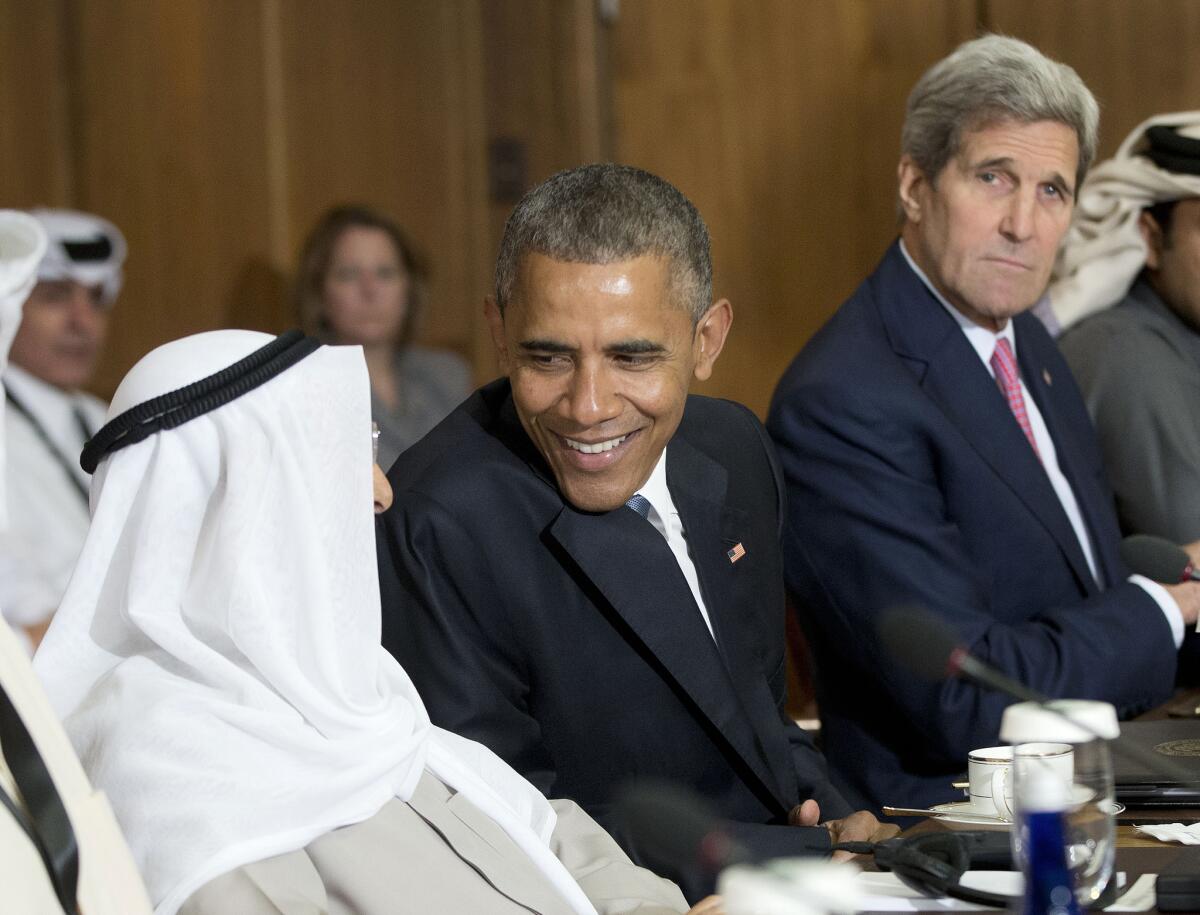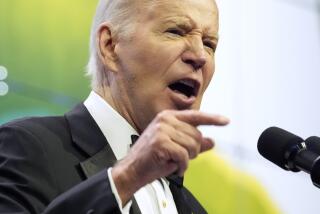Congress approves bill to provide oversight on easing Iran sanctions

President Obama, accompanied by Secretary of State
The House gave final approval Thursday to legislation that will provide congressional review of any potential nuclear deal with Iran, sending President Obama an oversight measure he once resisted.
House passage, by a 400-25 vote, followed almost unanimous support from the Senate as lawmakers assert a role for Congress in the administration’s talks with five other leading nations and Tehran.
The White House initially threatened to veto legislation that it viewed as meddling in executive-level negotiations. But the administration has since relented as Congress crafted a measure Obama could accept.
“This now injects Congress as an important backstop,” said Rep. Ed Royce (R-Fullerton), the chairman of the House Foreign Affairs Committee. “Congress will be in a much better position to judge any final agreement.”
The administration is nearing a June 30 deadline to strike a deal that seeks to curtail Iran’s nuclear program, which is viewed as a threat to Israel and stability in the Middle East.
The United States and five other leading nations -- Britain, China, France German and Russia -- are in talks with Tehran to lift domestic and international sanctions on Iran in exchange for restrictions on its development of a nuclear weapon.
Many in Congress do not trust Iran and are uneasy with the framework of the agreement that would ease sanctions. Lawmakers wanted further say in the matter, but the administration argued congressional intervention could derail what have been complicated negotiations.
The measure now headed to the White House for Obama’s signature would give lawmakers 30 days to review any final deal, and establish a mechanism for Congress to vote to support or oppose it.
Under House rules, the legislation needed a super majority for passage, and it easily cleared that threshold with bipartisan support.
Republicans provided the most dissent, as many conservatives aligned with Sen. Tom Cotton (R-Ark.), who pressed unsuccessfully for additional restrictions and oversight, and was the lone no vote in the Senate.
Liberal Democrats also opposed the measure, worried the legislation could interfere with talks they support as a diplomatic solution. They argued that Congress already possessed tools to provide oversight of the administration’s actions.
The House also approved a separate measure that would clamp down on financing streams to Hezbollah, broadening sanctions already imposed on the Iran-backed group, which the U.S. has accused of terrorism.
The measure would sanction banks doing business with Hezbollah, cut off satellite providers to a television station associated with the group and study whether Hezbollah should be designated as a major drug trafficking organization.
For the latest from Congress follow @LisaMascaro
More to Read
Get the L.A. Times Politics newsletter
Deeply reported insights into legislation, politics and policy from Sacramento, Washington and beyond. In your inbox three times per week.
You may occasionally receive promotional content from the Los Angeles Times.











